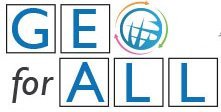In an era in which understanding our planet and its dynamics is more critical than ever, the Geo-information Science and Earth Observation for Environmental Modelling and Management (GEM) Joint Master programme is nurturing the next generation of Earth Observation practitioners.
Backed by four leading European universities and co-funded by the European Commission through Erasmus+, the two-year course equips students with cutting-edge skills in Earth Observation and Environmental Modelling. The programme aligns with the objectives European Commission’s Green Deal and the global 2023 Agenda for Sustainable Development, filling a pressing need for highly skilled professionals capable of leveraging big data from Copernicus services and emerging trends in data science and analytics, artificial intelligence, cloud computing, and open science.
The Geo-information Science and Earth Observation for Environmental Modelling and Management (GEM) Joint Master programme is a unique international MSc programme that is jointly organised by four European universities and designed to meet the growing demand for highly skilled professionals in the fields of Earth Observation and Environmental Modelling.
It’s a two-year course co-funded by Erasmus+, which attracts hundreds of applicants from Europe and around the world. It brings together the world-leading applied Earth Observation (EO) and Geographic Information (GI) expertise of ITC – University of Twente, Netherlands (Natural Resources Management), Lund University, Sweden (Physical Geography and Ecosystem Science), UCLouvain, Belgium (Agriculture and Land Use Planning), and University of Tartu, Estonia (Socio-Ecological Systems and Urban Planning).
Copernicus provides vast amounts of open EO data to understand how, where, and when human-environment interactions occur and what their impacts are. Parallel advances in data science - including big data analytics, artificial intelligence, cloud computing and open science - provide unprecedented access to computational methods and resources to extract knowledge and insights from EO data and GI. These advances are transforming the way society sees and understands the world.
Urgent action is needed to achieve the ambitions of European and global development agendas. In Europe, the European Commission’s (EC) Green Deal calls for investment in knowledge and innovation to preserve Europe’s natural environment as part of its future growth strategy. Globally, the 2030 Agenda for Sustainable Development emphasises the need to invest in new knowledge, technologies, and business strategies to ensure green, sustainable, and equitable growth. These agendas require new sources of information on human-environment interactions.




